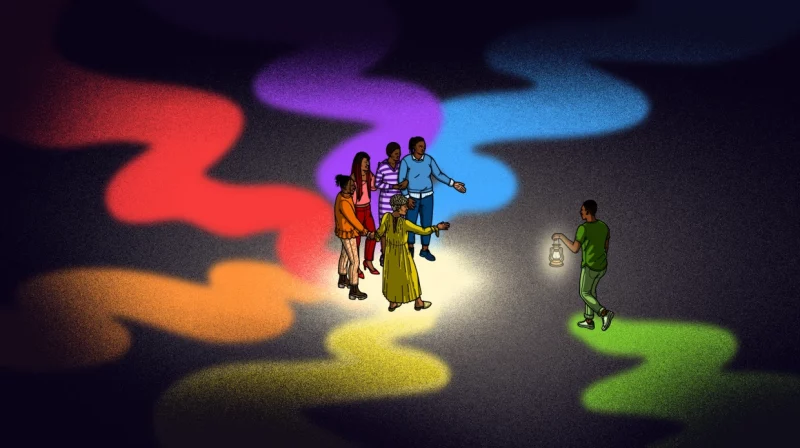How the Black queer community is re-imagining the family tree
Share
Explore Our Galleries
Breaking News!
Today's news and culture by Black and other reporters in the Black and mainstream media.
Ways to Support ABHM?
By Tat Bellamy-Walker
LGBTQ groups like SisTers PGH, bklyn boihood and Destination Tomorrow are building chosen families for Black queer people who were disowned by their birth families.

For years, Morgan Mann Willis dreamed of having a community where it would be safe to openly talk about queer identity, explore sexual desires and be supported by others. That sense of belonging wasn’t something Willis, who uses she and they pronouns, had with their family of birth, in which there was a “really big gap of feeling like a whole person.”
“I don’t think that my family was ever going to be a place where I was going to think about the fullness of who I am or my identity or what my needs were,” Willis said.
So Willis, 38, created their own family. More than a decade ago, they joined bklyn boihood, a Black queer party and event collective that operates in cities across the U.S, to connect with LGBTQ people who identified on the masculine gender spectrum.
“Being a part of it has meant being able to dream beyond the boundaries of gender, of sexuality, of identity, and give us room to kind of fully bloom into whoever we are,” said Willis, who now lives in Detroit. “One of the ties that binds us is kind of the way that our masculinity is presented and maybe isn’t presented or lives in the world.”
Being part of the group was one of the first times, Willis said, they had a place to openly discuss queer sex and relationship traumas and to celebrate their milestones. When Willis performed at a queer storytelling event, they said, they almost cried when they saw the group cheering them on from the crowd.
Learn more about how the queer Black community finds chosen family.
Everyone from Billy Porter to Lil Nas X have called out homophobia in the Black community.
Find more breaking Black news.









Comments Are Welcome
Note: We moderate submissions in order to create a space for meaningful dialogue, a space where museum visitors – adults and youth –– can exchange informed, thoughtful, and relevant comments that add value to our exhibits.
Racial slurs, personal attacks, obscenity, profanity, and SHOUTING do not meet the above standard. Such comments are posted in the exhibit Hateful Speech. Commercial promotions, impersonations, and incoherent comments likewise fail to meet our goals, so will not be posted. Submissions longer than 120 words will be shortened.
See our full Comments Policy here.